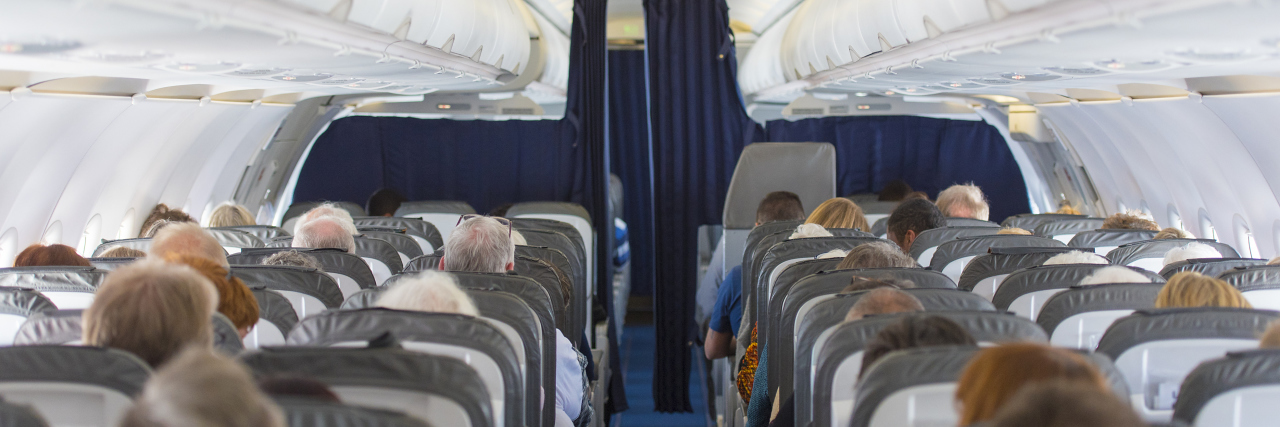It is not hard to notice that air travel has become more stressful in the last few years. Between long security lines, confiscated water bottles and impounded tweezers, everyone’s patience seems to be running thin. On top of this, our family has the added stressor of traveling with a child who has food allergies. We don’t just worry about missing the plane or forgetting to pack certain belongings; we worry about what other passengers on the plane are eating and if we will have enough life-saving epinephrine at 35,000 feet to counter a possible fatal anaphylactic attack.
I’ve noticed a lot of resentfulness out there towards those who need extra help with flying. There are grumblings of “special assistance,” holding up planes, and just frustration in general toward any group who needs extra measures. Whether you have a disability or not, travel can be difficult, and when we take measures to help one group, we will inevitably help ourselves. Let me explain.
In October of 2014, I gave a presentation about “Food Allergies and Travel” at the Universal Access in Airports conference in Chicago, sponsored by Open Doors Organization. Open Doors sponsors this conference to bring together representatives from aviation and the disability community in order to learn, share and discuss best practices.
My panel consisted of a representative from the blind, deaf, and wheelchair user communities who shared their experiences. One story that comes to mind is of the passenger who was deaf and did not know her gate was changed because it was verbally announced before it was posted, and she saw everyone running elsewhere to catch this plane. She panicked because she did not know if something terrible had occurred nearby, since everyone had suddenly moved away. Although the gate agent was aware she was deaf, no one bothered to inform her of the situation, which led to a very stressful situation for the traveler. I realized at that moment how incredibly challenging travel could be for these groups of people. Now when I travel, I take notice of things like grade changes in the corridors of the airport that would make it hard to navigate in a wheelchair — something I never would have noticed before. I have become aware and thus more empathetic.
This is where it gets interesting — why should you care? As we age, we will all naturally have changes in our abilities. Some of us will lose vision, or find walking more challenging, or become hard of hearing. In addition, we may have parents or loved ones diagnosed with diseases ranging from Alzheimer’s, cancer, multiple sclerosis, cataracts, or diabetes. We may develop life-threatening food allergies, as a new study shows over 50 percent of people with potentially harmful food allergies have developed them as adults.
When we support change that widens ramps, opens doors, assists those with vision or hearing challenges, or helps protect those who may have life-threatening food allergies, we may someday be assisting our parents, our children or even ourselves. We all win when we look out for one another.
How would you feel if it was your parent, your child, your loved one or yourself that wanted to travel safely, but needed special assistance? Would you tell them to suck it up, wing it, or even worse, not travel at all and be homebound because there aren’t adequate safeguards in place? We need to put ourselves in other people’s shoes more often and realize that when we support them now, we might be ultimately supporting ourselves later.
Learn more at The No Nut Traveler.
We want to hear your story. Become a Mighty contributor here.
Thinkstock photo by Alxey Pfnerov.

